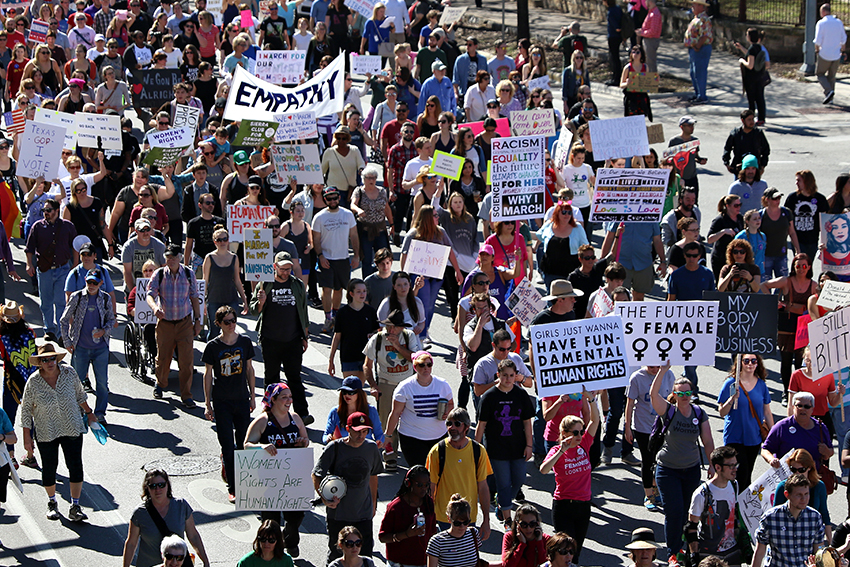The Women’s March on Washington was an impressive display of unity among American women and their allies, coming just a day after the inauguration of President Donald Trump. However, what was meant to be a unifying event received backlash from many LGBT communities for its exclusive nature.
The original name “Million Women March” hurt minority women because it plagiarized the name of a significant march on Washington by and for black women in the 1980s. However, after re-organization, the Women’s March sought to bring together women from all across the country to peacefully protest many of Trump’s anti-women policies. The organizers of the Women’s March, not just in Washington but throughout the nation, sought to establish an inclusive safe space.
In fact, the majority of the co-chairs represented targeted minority groups: Mexican-American, Muslim and African-American. Minority women — including actress America Ferrera and civil rights activist Zahra Billoo — spoke during the march, and movements such as the Indigenous Women Rise campaign filled the crowds. However, transgender and queer communities criticized the focus of the march as genitalia-based. Cisgender women and their allies dressed in pink, cat-eared hats and vagina-inspired costumes advocated for an insular gender-based agenda. Many trans and queer Americans were planning to attend, but the exclusionary focus on gender issues and reproductive rights left the LGBT community wondering who will ally with and fight for them.
While the white, cisgender women marched against the hateful rhetoric used towards women in the presidential campaign, they left behind their queer brethren concerned about legal discrimination and marriage equality. Awareness of trans and queer communities has been grossly unrecognized despite the growing number of young people that question their gender identity. The need to educate America on trans and queer issues is important for underrepresented groups.
Trans and queer communities have been weighted with the responsibility to educate America. Meanwhile, those actively oppressing LGBT communities slander and criticize them for their sexual orientation and gender identity. However, queer minorities are branded as rebels without a cause when they push back. Asking them to educate someone who views their very identity as strange or perverse is like asking a woman to smile at her rapist. It’s an unfair and insane request.
The international recognition received because of the Women’s March could have been an opportunity to speak for the trans and queer community alongside women. However, education was at the back of organizers’ and protesters’ minds as they advocated narrow agendas for gender-normative reproductive rights that effectively silenced others’ voices.
The Women’s March movement asks marginalized groups to support a movement that they don’t identify with or risk going unheard. However seemingly divisive these criticisms may be, they have opened a dialogue for the trans and queer communities to be understood. Possessing more influence, privileged feminists and their allies should take the initiative to educate themselves and their communities on trans and queer movements and rights. Giving these communities a voice only seeks to strengthen the unity felt among the LGBT and female communities.
Kandra is a chemistry and economics sophomore from San Antonio.





















